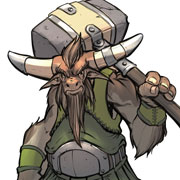|
me, watching amazon warehouse workers unionize: NO!!!! Don't you know that Hyndman wrote that unions are a hindrance to that complete organisation of the proletariat which alone can obtain for the workers their proper control over their own labour?!?! WHAT ARE YOU DOING?! STOP!! e: wow what an awful snipe. devoid of context I want to make clear that Hyndman was a dumbass antisemitic little bitch
|
|
|
|

|
| # ? May 31, 2024 23:12 |
|
Its ok, I was also incensend by ronya's arrogant non-answer.
Crumbskull fucked around with this message at 22:11 on Nov 16, 2020 |
|
|
|
This is a leftist theory thread. The scholastic wankery comes pre-ordained, I'm afraid  Anyway, I don't think "have you read the handouts" is a moral duty in any sense for participating in a dead comedy forum thread, even one explicitly on theory. Like you have said, it doesn't invalidate one's thoughts on the topic. If someone does ask me however to declare an ideological affiliation, my view is and remains that focusing on affiliations is not a good way to structure one's thinking. Don't let that stop anyone, please - I'm not setting out to metamod the thread and I wouldn't even have brought it up if I wasn't personally explicitly asked.
|
|
|
|
I have never known royna to have an opinion of their own on even so much as the preferred flavour of crisps so getting a socio-political theory out of them is likely to be fruitless.
|
|
|
|
VictualSquid posted:I actually do not know why and how exactly the people of the SU fairly decided to release firms into private ownership in such a fashion that the previous administrators became the owners. I don't think it's true that you can trace a gradual accumulation of power in the state bureaucracy's hands from, idk, 1927 to 1989 or whatever. What made soviet administrators more powerful under Kruschev than under Stalin, or under Brezhnev than under Kruschev? Certainly many if not all of them might have wanted to become billionaires who owned everything the entire time, but, to paraphrase uncop from another thread, they can't all do that and each one's personal quality of life depends on their preventing their peers from defecting and becoming billionaires. So what was so different about 1992 as opposed to 1950 or 1970? Not some sort of critical mass tipping point of accumulated bureaucratic privilege, but shifts in the global balance of economic power such that the Soviet state was in a weak position in terms of international trade flows and was willing to do make risky, desperate changes to its own internal functioning. It wasn't a strengthening but a weakening of the USSR that allowed capitalism to metastasize.
|
|
|
|
I asked what ecomic theories you thought have strong descriptive power and use. I didn't ask you to tell which religion will get me into heaven, dude. That wasn't cholastic wankery it was an annoying, pompous speech you would give to a teenager (which I am not) who was just beginning to get curipus about political economy (which I am not) and had indicated they were searching for the One True Theory (which I am not). If you are going to insist on prevaricstinf about which economic theories you believe have utility (context specific or otherwise) and are instead jusylt going to keep haughtily implying thay everyone else in the thread is uncritically pushing a party line due to their own myopic ignorance of the breadth discourse (not like you, who HAS done all the homework) then in my opinion you are not likely to constructively add much to this thread. So, I'll ask again (and please, try to imagine I am not a huge dumbass totally ignorant of world history and political economic theory): While you've habdily problematized some of the mainline economic theories that are prominent currently, I am curious if you have encountered alternate theories you view as better able to resolve those problems? (E.g. is there an economic theory that you feel resolves the 'comovement problem' that the neoclassical systems have) EDIT: 'Whats your favorite crisps' "Well, actually, if you eat ALL the crisps, and do a lot of crisp research you'll learn that for one thinf peoples experience of crisp taste is SUBJECTIVE and further chip preference is context dependent, you wouldn't say potato crisps are the best for nachos would you? Here is a list of some of the most common crisp flavors for you to get started on.' 'Actually you know what, I think I'm gonna just eat my lunch alone from now on.' Crumbskull fucked around with this message at 22:40 on Nov 16, 2020 |
|
|
|
The scholastic wankery is almost entirely coming from one poster. My main focus here is where theory can inform praxis. I honestly couldn't give a crap about the literature except where it can raise useful insights around how best to avoid power concentrating and collapsing the interesting cooperative projects I'm currently engaged in or will be over the next five years. Having praxis now, imo, is much more important than a hundred theoretical discussions in a book that nobody will ever read. Being able to actually run social experiments with different organizational forms, even if only on a small scale, seems an absolutely vital step in making the "science" part of "social science" a reality. Edit: can we please stick with favourite crisps or favorite chips because the cross-pollination of linguistic styles could create areas of philosophical entanglement in what should otherwise be a sharp partition in the Anglo-American universe of starch-based snacks. Thanks. Active Quasar fucked around with this message at 23:43 on Nov 16, 2020 |
|
|
|
Ferrinus posted:I don't think it's true that you can trace a gradual accumulation of power in the state bureaucracy's hands from, idk, 1927 to 1989 or whatever. What made soviet administrators more powerful under Kruschev than under Stalin, or under Brezhnev than under Kruschev? Certainly many if not all of them might have wanted to become billionaires who owned everything the entire time, but, to paraphrase uncop from another thread, they can't all do that and each one's personal quality of life depends on their preventing their peers from defecting and becoming billionaires. So what was so different about 1992 as opposed to 1950 or 1970? Not some sort of critical mass tipping point of accumulated bureaucratic privilege, but shifts in the global balance of economic power such that the Soviet state was in a weak position in terms of international trade flows and was willing to do make risky, desperate changes to its own internal functioning. It wasn't a strengthening but a weakening of the USSR that allowed capitalism to metastasize. Since you're paraphrasing me, I wanna fill in my thoughts. I agree with the gist of this, but I'd add that preventing one's peers from becoming billionaires is only the best srtategy for a middling bureaucrat if they can't ride on such a billionaire's coattails. As the economy developed more and more private space for bureaucrats to develop their fortunes, starting from the Stalin constitution, taking a leap with the Khrushchev and Brezhnev era emulation of capitalist competition, and hyper-accelerating with Gorbachev's reforms, coattail-riding became more and more realistic as a strategy. You know how bureaucrats were eventually the ones selling the USSR out and engaging in a massive free-for-all to plunder it. They always contained a pro-capitalist fifth column (who Stalin mistook for foreign agents and his "successors" made peace with), and they were allowed to make themselves so necessary to the economy that they could win demand after demand decade by decade. IMO this internal pull toward capitalist-style institutions was the fundamental force and USSR's economic troubles were an external factor, much like how neoliberal elites in the west used economic crises to paralyze their competition and accelerate the implementation of their policies. Pentecoastal Elites posted:Like, what we're doing here in this thread is mostly masturbatory, because it's fun to talk about this stuff, but it's not very useful beyond the broad strokes -- what is your relationship to your labor, the product of your labor, and the profit your boss takes. How does that inform our current situation? What can we do about it? What does a world look like where that is changed for the better? All stuff anyone can easily grasp in like a ten minute overview of Marx's writing. Who gives a poo poo about "the wider field"? Who gives a poo poo about knowing all of the literature? Who in the world could possibly, ever, give a single poo poo about academic debates so far removed from actual lived reality that they're only relevant or interesting to other academics? If "correct thought" and best practice lie somewhere deep inside thousands of hours and hundreds of thousands of pages in university reading lists it's totally worthless. The ideas are useless for anything other than academic fart-huffing because they require so much investment and can't be communicated easily. Yes! Well-read people aren't some "acolytes" that should be begged to give out their learned wisdom. If the dead word they have read has the potential to live, it won't live unless they translate it into something communicable and useful. And after that, there's the question of who they translate it to serve. The natural tendency of the academia-poisoned person is to become an exemplary servant of themselves and some rich patron, while jealously safeguarding their special position from the hoi polloi. Of course, this thread would need to be oriented toward a purpose to have potential to be less masturbatory. Disnesquick posted:My main focus here is where theory can inform praxis. I honestly couldn't give a crap about the literature except where it can raise useful insights around how best to avoid power concentrating and collapsing the interesting cooperative projects I'm currently engaged in or will be over the next five years. Having praxis now, imo, is much more important than a hundred theoretical discussions in a book that nobody will ever read. Being able to actually run social experiments with different organizational forms, even if only on a small scale, seems an absolutely vital step in making the "science" part of "social science" a reality. What is the actual honest purpose of your cooperative projects? If you just need theory of minimal hierarchy cooperative management, that's business theory, not socialist theory. Cooperatives can be part of a socialist praxis, but they're not socialist praxis in itself and can be ran perfectly well without engaging with socialism at all. Socialist theory is ultimately about how to stitch together all these regular human efforts into an organized collective effort that can produce a new society. The theory serves people who want to personally live life in a way that isn't possible under capitalism and would subordinate themselves to a collective struggle to make it possible. It's only useful to cooperatives whose members want to subordinate themselves to the needs of a larger struggle. If you're interested in cooperatives because of socialist goals, the main use of the theory for you is to explain the conditions that are required for a co-op to be a force to advance socialism, and strategies of linking up with others with the same goal. As a possibly helpful aside, I've recently been inspired by this concept of what i could call a support mutual aid cooperative: a cooperative that links up local mutual aid efforts by providing services that they all need. That's socialist theory put to action: dividing labor so that everyone is serving someone they know how to serve and want to serve, in a way they know how to. Locals having their ear to the ground and figuring out how to meet people's concrete goals with the least amount of resources, and others listening to all those local efforts and figuring out what could be acquired in bulk to provide it more efficiently. But it's work that takes an entirely different attitude from either "business" or "charity".
|
|
|
|
We must seize the means of crispduction.
|
|
|
|
uncop posted:What is the actual honest purpose of your cooperative projects? If you just need theory of minimal hierarchy cooperative management, that's business theory, not socialist theory. Cooperatives can be part of a socialist praxis, but they're not socialist praxis in itself and can be ran perfectly well without engaging with socialism at all. You've pretty much answered your first paragraph with the second paragraph. My main observation over my life of engaging with this stuff is that internet chat time simply isn't enough, and big dull meetings about theory-crafting are not enough. People need to actually gather in once place so that they can strategize outside of the crushing parasitism of late capitalism and gain the personal energy from actually enjoying life without the boot on their necks. The grand schemes can come when that dynamic has been established but trying to work out how and when etc. without the unplannable combination of people that will be involved is jumping the gun. We've just seen top-down attempts fail in the UK and the USA. My analysis of that is that the Left simply had no leverage. All the media bad-faith attacks could have been countered with a definite willingness to strike but we've lost that cudgel. A Co-op is, in my mind, a good step in establishing strategies and network foci for rebuilding that. There are obviously many other groups that would be useful (e.g. rental unions) but as someone who's very rural, that's not really something that I feel would be an optimal use of my own experiences and resurces.
|
|
|
|
uncop posted:Since you're paraphrasing me, I wanna fill in my thoughts. I agree with the gist of this, but I'd add that preventing one's peers from becoming billionaires is only the best srtategy for a middling bureaucrat if they can't ride on such a billionaire's coattails. As the economy developed more and more private space for bureaucrats to develop their fortunes, starting from the Stalin constitution, taking a leap with the Khrushchev and Brezhnev era emulation of capitalist competition, and hyper-accelerating with Gorbachev's reforms, coattail-riding became more and more realistic as a strategy. I actually don't know and am curious as to the extent to which some bureaucrats were able to ride on the coattails of others rather than just get screwed and flushed down the economic toilet in the process of capitalism's restoration. I've anecdotally heard that plenty didn't get to make the jump from commissar to oligarch but have no idea as of the proportions.
|
|
|
|
Disnesquick posted:Edit: can we please stick with favourite crisps or favorite chips because the cross-pollination of linguistic styles could create areas of philosophical entanglement in what should otherwise be a sharp partition in the Anglo-American universe of starch-based snacks. Thanks. Unfortunately both my parents were born in England but my father was actually raised in Oregon to be a good old boy redneck and so I am never aware of when I'm doing that and am usually just aping whatever the last person I heard said.
|
|
|
|
uncop posted:Socialist theory is ultimately about how to stitch together all these regular human efforts into an organized collective effort that can produce a new society. The theory serves people who want to personally live life in a way that isn't possible under capitalism and would subordinate themselves to a collective struggle to make it possible. It's only useful to cooperatives whose members want to subordinate themselves to the needs of a larger struggle. If you're interested in cooperatives because of socialist goals, the main use of the theory for you is to explain the conditions that are required for a co-op to be a force to advance socialism, and strategies of linking up with others with the same goal. As a professional co-operative developer getting a masters in 'co-operative management': I agree.
|
|
|
|
Disnesquick posted:Edit: can we please stick with favourite crisps or favorite chips because the cross-pollination of linguistic styles could create areas of philosophical entanglement in what should otherwise be a sharp partition in the Anglo-American universe of starch-based snacks. Thanks. biscuits are the carb of the proletariat
|
|
|
|
Herstory Begins Now posted:biscuits are the carb of the proletariat But do you mean cookies or quick bread??? Uh, stupid question but whats the best/easiest way to host .pdfs so I can post them in here, have some papers I want to share. Crumbskull fucked around with this message at 11:18 on Nov 19, 2020 |
|
|
|
Google drive let's you read it in browser
|
|
|
|
What is"praxis"? Why is it always being thrown around in leftist circles? How is it different from "Practice"? Does it mean the same as "execution"? And why don't we use that instead?
|
|
|
|
praxis is the application of theory in the material world, it's synonymous with practice but is typically used when you want to explicitly communicate that your actions stem from a theoretical basis. theory becomes praxis and the results of this praxis are analyzed and it informs more theory, repeating indefinitely as contradictions are found and resolved.
|
|
|
|
DrSunshine posted:What is"praxis"? Why is it always being thrown around in leftist circles? How is it different from "Practice"? Does it mean the same as "execution"? And why don't we use that instead? https://www.youtube.com/watch?v=XqGnAIgzUTY
|
|
|
|
DrSunshine posted:What is"praxis"? Why is it always being thrown around in leftist circles? How is it different from "Practice"? Does it mean the same as "execution"? And why don't we use that instead? https://twitter.com/whysimonewhy/status/1143280089133699072
|
|
|
|
Yeah itís basically practice
|
|
|
|
|
CYBEReris posted:praxis is the application of theory in the material world, it's synonymous with practice but is typically used when you want to explicitly communicate that your actions stem from a theoretical basis. theory becomes praxis and the results of this praxis are analyzed and it informs more theory, repeating indefinitely as contradictions are found and resolved. Is this another description for a materialist dialectic? I've always had a hard time wrapping my head around Hegelian dialectics but this seems much more intuitive to me
|
|
|
|
I believe yes that is considered a dialectical process.
|
|
|
|
Sharks Eat Bear posted:Is this another description for a materialist dialectic? I've always had a hard time wrapping my head around Hegelian dialectics but this seems much more intuitive to me It's a dialectic, not specifically a materialistic dialectic.
|
|
|
|
Sharks Eat Bear posted:Is this another description for a materialist dialectic? I've always had a hard time wrapping my head around Hegelian dialectics but this seems much more intuitive to me Praxis as CYBEReris explained it is a dialectic but not a materialist one. The thing about materialist dialectics is that the tendential direction of the flow goes from the real world toward the world of consciousness (or alternatively, consciousness and thought aren't involved at all in the dialectic). The explicitly materialist take on praxis is that the process of social practice produces new thought, which is then applied back to alter social practice. But the word "praxis" is more commonly used to talk of an opposite flow that marxists would call idealist: that the process of thought produces new social practice and that feeds back to improve ideas and theory. The tendential direction of the flow, or which side of the dialectic is principal, is concretely about which side develops more organically and self-reliantly and which side develops in leaps in response to changes in the other. Generally speaking, it's very rare for new thought to cause sweeping changes in how things are actually done, and much more common for new social practice to force sweeping changes in how people think. You can think of how science reacts to whenever it expands to new experimental areas where their old theories don't produce correct forecasts anymore. They can completely overturn their models and replace them with new ones from first principles. But whenever science discovers revolutionary new practical possibilities like nuclear power, flight or gene manipulation, they are usually applied as iterative improvements to how things were already done: e.g. a step in the old social practice is replaced with a machine that enables people to do the same thing in a new and improved way. uncop fucked around with this message at 07:39 on Nov 20, 2020 |
|
|
|
Damm, that makes a lot of sense. Whose insight is this?
|
|
|
|
Crumbskull posted:Damm, that makes a lot of sense. Whose insight is this? Yeah wow thatís a great write up, thanks much Another set of noobie Marxist questions (if this is getting too annoying or not within the purpose of the thread lmk) ó is this an accurate albeit oversimplified statement: capitalism leads to class struggle leads to class consciousness/solidarity leads to socialism leads to communism? And if so, what does Marx say about the conditions that allow class struggle to... evolve?... into class consciousness? Is it fair to say that the ML school would say the answer is vanguardism? And last question for now, are there other schools of thought that (to borrow the awesome dialectic analogy above) advocate for achieving class consciousness through application of Marxist theory to old social practices that were used for population level ideological indoctrination (which obviously has a negative connotation but I mean it in a neutral way), namely church/religion? Or would it be impossible to do that in 2020 because the well has been too poisoned by capitalism for it to be anything but a grift?
|
|
|
|
Crumbskull posted:Damm, that makes a lot of sense. Whose insight is this? The insight seems to have originated in Marxís and Engelsís interactions sometime in the 1840ís, when they were polemicising against the Young Hegelians about hegelianism and materialism. As far as I understand, the realization was the basis of their leap from philosophy and enlightened newspapers to mass politics, political economy, military theory and science more generally. But they never wrote their thoughts down quite that clearly, so itís always been a matter of interpretation and a point of contention. Both academics and socialist bureaucrats seem to find it more natural to see the world as if their thought was the steward of social practice, so it doesnít really end up written in many texts with clarity.
|
|
|
|
Sharks Eat Bear posted:Another set of noobie Marxist questions (if this is getting too annoying or not within the purpose of the thread lmk) ó is this an accurate albeit oversimplified statement: capitalism leads to class struggle leads to class consciousness/solidarity leads to socialism leads to communism? I'll let someone better equipped than myself handle the other questions, but I can manage this one. The thinking isn't really this linear, nor is there a meaningful distinction between socialism and communism in orthodox Marxist thought - most of the time (but not always) when Marx is writing about socialism, he's talking about conceptions of socialism he dislikes, but otherwise uses the terms interchangeably and definitely not in a linear fashion. To quote myself from earlier in the thread, Falstaff posted:The narrative you're probably operating from is a pretty common one these days is that you start with Capitalism, with its markets, the state, money, all that stuff. Then workers take power and socialism happens. Socialism has a state* and classes but with the working class in charge. Then the bourgeoisie are defeated and classes, money, and the state all disappear and we've achieved communism, which is stateless and classes. Thing is, this isn't Marx. So whether a society emerges through the transitional phase into lower-phase communism (aka Socialism) or higher-phase communism (aka Communism) is dependent on the material conditions of the transitional society - some societies might "skip" the lower phase entirely, others might remain in the lower phase for a very long time after emerging from the transitional period. Presumably there would also be something that comes after communism (communism, after all, would inevitably have its own set of contradictions which it cannot resolve except through a newly-emerging system), and which either phase could evolve into, but this would be exceedingly hard to predict or even talk about without actually inhabiting and analyzing an actually-existing communist society.
|
|
|
|
uncop posted:Praxis as CYBEReris explained it is a dialectic but not a materialist one. The thing about materialist dialectics is that the tendential direction of the flow goes from the real world toward the world of consciousness (or alternatively, consciousness and thought aren't involved at all in the dialectic). The explicitly materialist take on praxis is that the process of social practice produces new thought, which is then applied back to alter social practice. But the word "praxis" is more commonly used to talk of an opposite flow that marxists would call idealist: that the process of thought produces new social practice and that feeds back to improve ideas and theory. This is really enlightening and gets at the heart of what I was trying to find out about. So, essentially, in this use, "praxis" means a very specific thing unique to the context of dialectical materialism, which is that it's the converse of the flow of material conditions influencing thoughts. I think I get it now! Thank you!
|
|
|
|
uncop posted:The insight seems to have originated in Marxís and Engelsís interactions sometime in the 1840ís, when they were polemicising against the Young Hegelians about hegelianism and materialism. As far as I understand, the realization was the basis of their leap from philosophy and enlightened newspapers to mass politics, political economy, military theory and science more generally. But they never wrote their thoughts down quite that clearly, so itís always been a matter of interpretation and a point of contention. Both academics and socialist bureaucrats seem to find it more natural to see the world as if their thought was the steward of social practice, so it doesnít really end up written in many texts with clarity. Sorry to harp but uh, I'd like to know more, do yoy have a direction you can point me to explore this more? I've definitely sort of felt the shape of this idea, especially reading all this 'management science' and Organizational Behavior lit for my masters. Theres a big debate in co-ops about wether culture or organizational design are more determinative of the co-ops behavior over time and this feels close to being able to answer that question.
|
|
|
|
Sharks Eat Bear posted:Yeah wow thatís a great write up, thanks much There are two kinds of class struggle, two kinds of class consciousness and two kinds of class. I could call them economic and historic. For instance, there is the mass of exploited wage laborers, they're the proletariat in the economistic sense. They struggle for compensation against their bosses, and spontaneously organise into union struggle. Union struggle produces what Lenin called "trade union consciousness": the worker conceives themselves as what the ruling class tells them what they are: some chumps unfit to rule, dependent on captains of industry for their lifestyles, but deserving of fair treatment in exchange for loyalty to liberal society. The historic proletariat are workers that conceive themselves as a class with a historic mission, and are organised in active political struggle against the whole wage system, with the aim of raising the economic proletariat to rule. People have to be pulled from the economic proletariat into the historic proletariat one by one by engaging them in political struggle. Marx identified the problem of class consciousness, but didn't live long enough to discover great answers. The International is a major part of socialist history, but it held basically no influence in the Paris Commune, which was the crowning example of historic proletarian class consciousness of the time. The class consciousness seen within the Paris commune had been raised by a national defense struggle that presented workers as heroic and the ruling classes as weak and traitorous. Engels, Kautsky and others responded to the failure with a new type of party that linked a unified marxist core with workers' organisations from unions to sports clubs. This was vanguardism as per Karl Kautsky, a vanguard leading a mass party. The task of the vanguard was to pull workers from all walks of life into political struggles, and get as many on the streets as possible. Lenin took Kautsky's formulation and adapted it to conditions of illegality. Members had to be 100% in or out, so Lenin's party couldn't include the masses and many called it a vanguard party. To complicate things, the CPSU and CCP and so on inevitably became mass parties after taking power; I'll lump those in with Kautsky to keep things shorter despite the inaccuracies. Since WW2, communists also paid close attention to the effect of wars of national defense on class consciousness. Many looked to Mao for strategy and assigned the vanguard party the task of raising an army. Armed class war was to be the primary form of political struggle that this vanguard would seek to pull workers into. So, there are three main vanguard conceptions that MLs disagree about. Is a Lenin-style vanguard the correct one for capitalist conditions, a Mao-style one the correct on for semi-feudal conditions and a Kautsky-style one best for socialist conditions? It feels like the standard answer of the kind of ML that likes the idea of everyone having been right. Softer, typically reformist MLs consider Kautsky-style to be superior in all legal conditions. MLMs say that a Mao-style one is best for all non-socialist conditions and disagree when it comes to socialism. And I'll also mention the Peruvians because they're relevant to the last question: they argue that the Mao-style vanguard is the correct one for all conditions up until full communism. The Peruvians are the most prominent example I know of when it comes to emulating successful ruling class indoctrination institutions. They set up their own schools and cultural events everywhere they went and basically utilized education, sermons, singing, parades and so on to instill a communist-nationalist ethos on the people. As far as I understand, they also emulated church in how participation should be voluntary in theory but required in practice for anyone who wants to present as a respectable member of society. I believe one thing the Peruvians were certainly right about is that *if* a movement should engage in that kind of practice on a mass scale, they first have to engage in warfare and forcefully integrate or drive out competing institutions. I think Islam in Europe is a good enough illustration of how hard it is to legalistically bring new cultural institutions into a country that finds them threatening and erects all sorts of bureaucratic barriers. All those oil dollars, established methods and talented organisers get surprisingly little done for how hard they're to acquire.
|
|
|
|
uncop posted:
I'm not that familiar with Peru. Are you talking about this movement? https://en.wikipedia.org/wiki/Ethnocacerism
|
|
|
|
The Oldest Man posted:I'm not that familiar with Peru. Are you talking about this movement? Shining path, from the 1970's to the 1990's. They pioneered their ideas before the armed struggle phase by being associated with the official education system and using that authority to inconspicuously pioneer education programs and so on in the undeveloped countryside. Guzman was a prof of philosophy in the local university, hired his comrades, and basically used state resources to finance undermining its influence. Then in the armed struggle phase, starting from the early 1980's, they set up their pioneered education and cultural institutions as *the* institutions wherever they managed to drive the state forces out. And they actually made the state abandon a large chunk of Peruvian territory at their height. I haven't read much about the specifics, because the wounds over that civil war are still open and it's hard to find anything in English that isn't written in the form of some kind of cold war -esque cautionary tale or unreserved praise from followers. Based on watching "The People of the Shining Path" and hearing historical anecdotes though, it seems like their indoctrination institutions were on par with like medieval Catholic Church or the US school and sports institutions. It's alternatively described as cultish because it looks really weird to an outsider, but cults usually mean groups that need to prey on specific kinds of vulnerable people to grow. uncop fucked around with this message at 20:37 on Nov 20, 2020 |
|
|
|
Most of what I know about the Shining Path comes from this video which, if accurate, seems less than great.
|
|
|
|
hi
|
|
|
|
Falstaff posted:Most of what I know about the Shining Path comes from this video which, if accurate, seems less than great. After Guzman or Comrade President Gonzalo as he prefers to be called was imprisoned I remember at least one of the surviving(at the time) factions of the Shining Path demanded his immediate release and hand over to them, so that they could execute him for the massacring of multiple villages. And when one of the other factions finally surrendered their leading commander defended himself in court by admitting that yes he and his cadre had carried out murder and terrorism, but most of the victims were collaborators and homosexuals and not normal citizens. https://www.insightcrime.org/news/analysis/shining-path-leader-confesses-to-killings-denies-drug-crime/ I also remember watching a documentary on Coca growers in Peru whose village was a frontline during the civil war, a police barracks in the middle of village complete with torture chamber which villagers disappeared in. And a Shining Path base on a nearby hillside where villagers also disappeared in. At least one family interviewed had members abducted and murdered by both groups and one told of how once they couldn't collect water from the river because the Shinning Path had purged its organisation and thrown their bodies in the river. Given how brutal and repressive the Peruvian government was and is and the actions of the other guerrilla movements that whole period seems like a non stop nightmare for the rural population. Baka-nin fucked around with this message at 01:15 on Nov 21, 2020 |
|
|
|
I didn't bring up them because they were supposed to be generally exemplary or anything though, I brought them up because they were a great example of specifically learning from successful *indoctrination* institutions and setting up some of their own, because that was the question. I think arguments that they were bad are arguments that speak in their favor in this specific case. It just enhances my comparison of them to "the medieval Catholic church". I just complained that I haven't heard of anyone writing in English about what exactly they did to so quickly turn so many adult people to this basically religious communist worldview. If you had someone write an anti-fascist book about Hitler-Jugend or an evangelical protestant book about Mormons, they probably wouldn't be very good at examining what made those institutions work either. (Or conversely, a Mormon book about Mormons etc.) uncop fucked around with this message at 10:40 on Nov 21, 2020 |
|
|
|
Isnít the conclusion from SP that if you gently caress with peopleís brains enough you can get the remnants of their independent minds to admit they agree with you? Which doesnít feel like the foundation on which we build a better world.
|
|
|
|
|

|
| # ? May 31, 2024 23:12 |
|
PCP didnít have the concrete ability to rule through brainwashing or terror. They were a rather small bunch and relied on the people around them to get large scale programs implemented. On the contrary, itís fairly clear that their downfall began from losing touch with certain populations and trying to fall back on terror. There is a large difference between the capabilities of an established state that has countless bureaucrats and can hold a violence monopoly over a geographic area, and a fledgling guerrilla army with loyalist councils whose membership had to be kept secret because the army could roll in at any time. The secret of PCPís decade-long success in armed struggle were methods that got regular people to bring each other on board. Again, think of how spreading mass religions do it: they use the sword to clear the way, but the way they actually get people to convert en masse is to set up institutions that many of them genuinely prefer to join, and which motivate them to convert each other. Whenever PCP failed at that process, they didnít gain a strong foothold into an area and lost it as soon as their guerrillas had to leave. And it rarely took long before they had to. This discussion is pretty risky at this point, so let me be explicit that I donít deny historical atrocities. Referring to them in this case just happens to be a thought-terminating cliche with no logical weight to it. I donít think anyone can get very far with socialism if they fear admitting that they support learning from people who did seriously dubious things. The French guillotinings, Haitian massacres, Russian civil war massacres etc. werenít actually good somehow, they were evils that cleared the path toward somewhere better. They werenít even necessary to progress, it was progress itself that was necessary and movements couldnít figure how to clear the path otherwise. And sometimes behind the obstacle is a dead end and the evils were for nothing. But the techniques developed to clear obstacles are still useful if the same ones are also found on the correct path.
|
|
|































